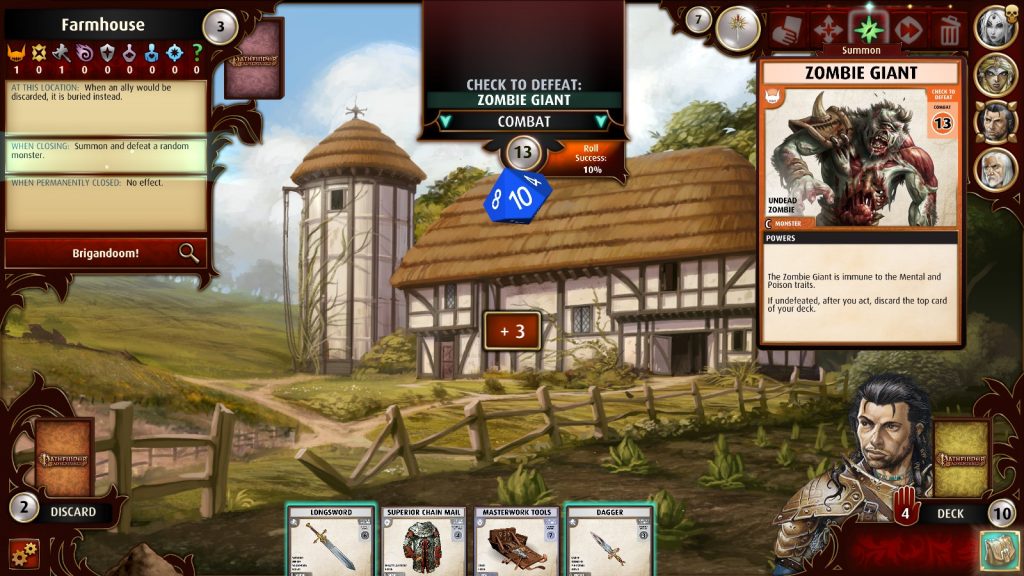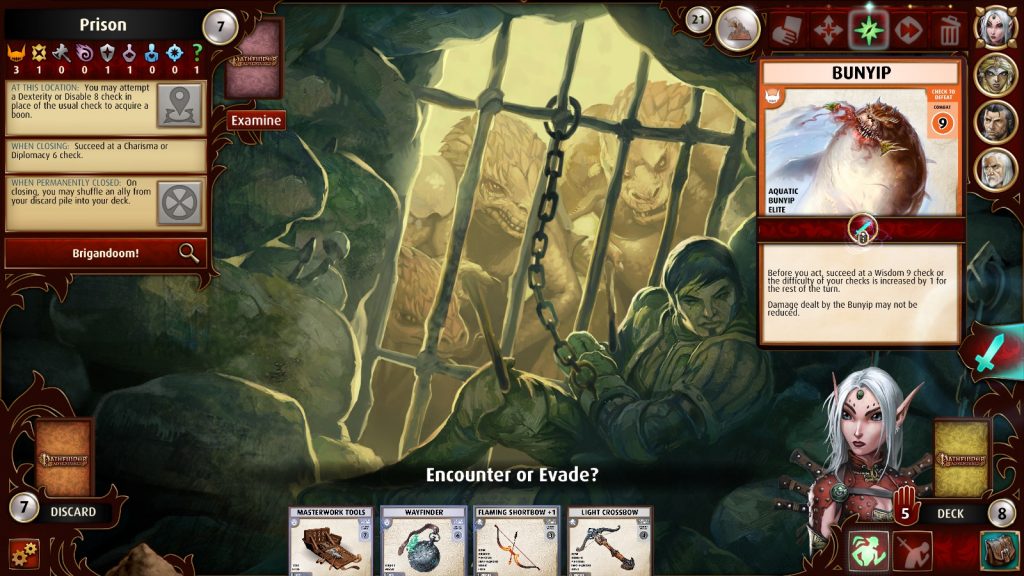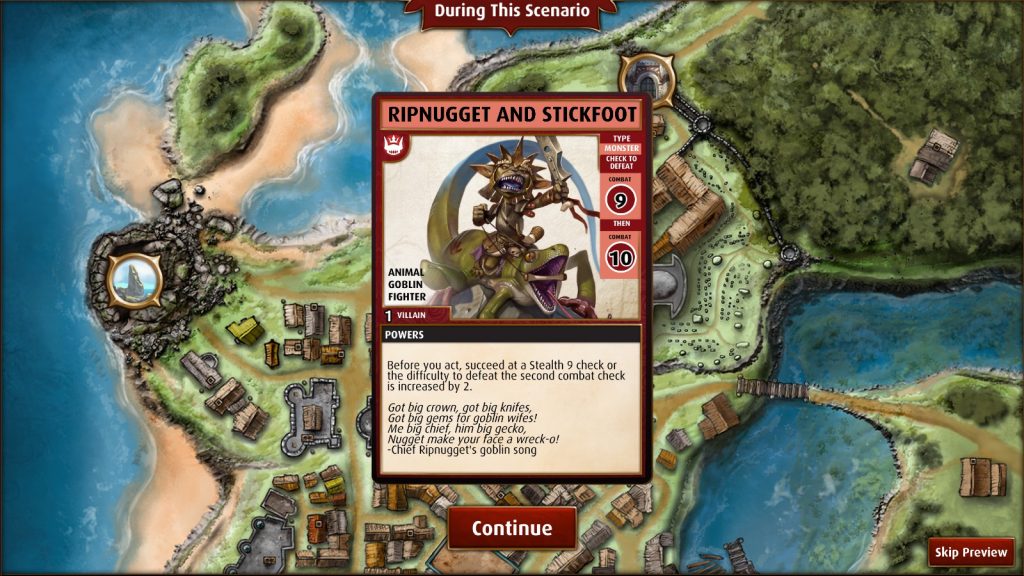Pathfinder Adventures (Review)
Source: Cashmoneys
Price: £18.99 (£29.99 for Obsidian Edition, £3.99 each for a cosmetic DLC and a “Some good cards and nice dice” DLC)
Where To Get It: Steam
You lose a lot of stuff when adventuring, it seems. Sometimes, in the most dickish of ways. “Get hit before the fight even begins, Discard 1d4-1 cards (Unless you have armour, which won’t always work)”, “Permanently lose this card to close this location (Which you need to do to win the adventure)”, “Permanently lose this thing to pass this other thing.”

“If you didn’t have a weapon, or have and roll low, become slightly more screwed. Oh, and it goes back into the location deck for you to encounter again later.”
If it weren’t for getting new cards, and not having to pay money for all but the best cards, I’d probably have quit Pathfinder Adventures (a tablet port of a collectible, co-operative card game that has now hit Steam) long ago. As it is, getting those new cards introduces its own irritations. But we’ll get to this in a bit. First, the general idea.
The general idea is that you play a party of adventurers (modelled after the Pathfinders, the mascot group of Pathfinder, which, itself, is off brand Dungeons and Dragons) , each with a limited hand, trying to fulfil quests where both time and hand size are against you. Run out of the Blessing deck (ticking down 1 per each character’s turn, more if you encounter the villain of each adventure early and let them get away), and you lose. Run out of cards to draw from your adventurer’s hand, and they die, making it harder to win the adventure (and dying permanently, losing you a lot of hard work, if you’re foolish or brave enough to turn Permadeath on.) There’s a lot more to it than that, and the tutorial feels quite heavy because it has to introduce a lot of concepts, pretty quickly, but that, in essence, is the core of it. You draw cards at a location until you hit either a henchman or a villain, and, depending on which it is, you either fight them to “close” the location (IE – “The Villain Ain’t Here, Boss, And They Can’t Run Here”), or you encounter the Villain, and try to make sure they can’t go anywhere else while you finish them off. Failure to do so, as mentioned, screws you, as the villain escapes and takes valuable turns to deal with said villain with them, to a random location you didn’t manage to close in time.
This, in essence, is a lot of my problem with Pathfinder Adventures: It’s very adversarial, and, even in victory, most of your rewards (whether added to each characters deck in play, or via post adventure rewards) are going to be thrown away, sold for the pitiful in-game currency sum of 1 Gold Piece per card, seemingly regardless of rarity or use. To give some idea of how insulting this feels, a generic blessing sells for the same price as either a better blessing, or a spell that adds 1d10+1 (big numbers, for low levels) to a wizard’s normally quite shitty combat skills, a quest generally rewards you with 100 GP for completion, and a chest that allows you to add four random cards (and sometimes dice, a cosmetic item) to your Unclaimed pile (which, thankfully, you get to keep until you “claim” them, at which point they become subject to the same “Most things get thrown away” rule) costs 500 GP.
Generally, your progression will be upward, to better, more damaging and more roll increasing cards, but any adventure that involves a lot of banishing cards is going to reduce that trend, and there is, like very old school Dungeons and Dragons, the occasional “No, fuck you, you just take damage” that makes the adventure more difficult in entirely frustrating ways.

Just in case you thought I was joking. “Damage taken cannot be reduced.” Damage = Discard cards from your hand. The one saving grace is that it isn’t *Banish* cards from your hand (Permanently lost.)
Visually, it’s quite nice, even if some UI elements (like that Blessing counter that determines whether you run out of time or not) get lost in the crush, and the sounds are okay. But I got tired of the music (especially the wailing violin of the theme tune) very quickly, there is no multiplayer that I’m aware of (Unlike the card game itself, which you play with friends), and honestly? The adventures have started annoying the hell out of me with the aforementioned “No fuck you, things get worse” pretty early on. It has a fair bit of depth, it has a fair few strategic elements that help minimise the luck based elements (Such as adding dice via blessings, changing the skill used to one you have better dice in via other cards, etcetera, etcetera), and I will, in its defense, say that it currently keeps Pay 2 Win and microtransaction fuckery to an absolute minimum, but otherwise, if I wanted to be told “Rocks fall, you lose 3 cards” , I’d join a Pathfinder game without asking what kind of DM was running things.
The Mad Welshman hastens to add that, if you like Pathfinder, you may have a more enjoyable experience. Emphasis on “may.”














